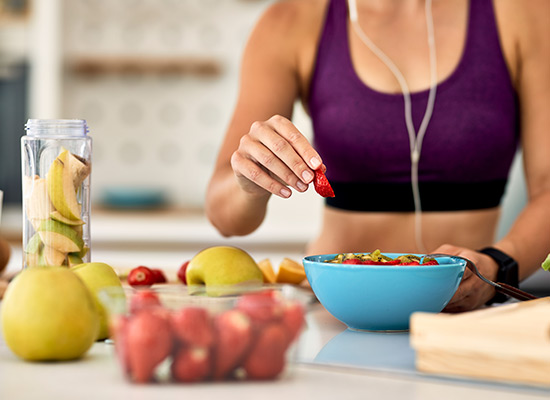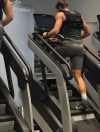Fueling your body with the right food before exercise is crucial to ensure optimal performance and maximize your workout potential. The food you consume prior to exercising can provide you with the energy, stamina, and nutrients needed to power through your workout and enhance recovery. Here are some key points to consider when it comes to pre-exercise nutrition.
- Carbohydrates for energy :
Carbohydrates are the body’s primary source of energy. Consuming a meal or snack rich in complex carbohydrates before exercising can provide your muscles with a readily available source of fuel. Whole grain bread, oats, brown rice, quinoa, and sweet potatoes are excellent choices. These carbohydrates release energy slowly and sustainably, providing a steady stream of fuel throughout your workout. - Protein for muscle support:
Including a moderate amount of protein in your pre-exercise meal or snack is beneficial for muscle repair and growth. Protein helps to maintain and build lean muscle mass, aids in recovery, and can enhance exercise performance. Good sources of protein include lean meats, poultry, fish, eggs, Greek yogurt, cottage cheese, and plant-based options like tofu or legumes. - Healthy fats for sustained energy :
While it’s important to limit the amount of fat consumed directly before exercising to avoid discomfort, incorporating healthy fats into your pre-workout meal can provide a source of sustained energy. Avocados, nuts, seeds, and olive oil are examples of healthy fat sources that can be included in moderation. - Timing is key :
It’s best to consume your pre-exercise meal or snack 1-3 hours before your workout to allow for proper digestion. This timeframe allows your body to absorb and utilize the nutrients effectively. If you have less time before exercising, choose easily digestible options such as a small snack or a liquid meal replacement shake. - Hydration :
Don’t forget the importance of hydration before exercise. Proper hydration is essential for maintaining optimal body functions, including circulation, temperature regulation, and nutrient transport. Aim to drink water or a sports drink containing electrolytes about 1-2 hours before your workout, and continue to hydrate throughout your exercise session. - Personalize your pre-workout nutrition :
Everyone’s nutritional needs and preferences differ, so it’s essential to listen to your body and experiment to find what works best for you. Pay attention to how different foods make you feel before and during exercise. Some people may find that a smaller meal or snack is sufficient, while others might require a larger meal to sustain their energy levels.
Remember that pre-exercise nutrition is just one piece of the puzzle. It’s essential to maintain a balanced diet overall and consider your individual fitness goals and requirements. Consulting with a registered dietitian or nutritionist can provide personalized guidance and recommendations tailored to your specific needs.


